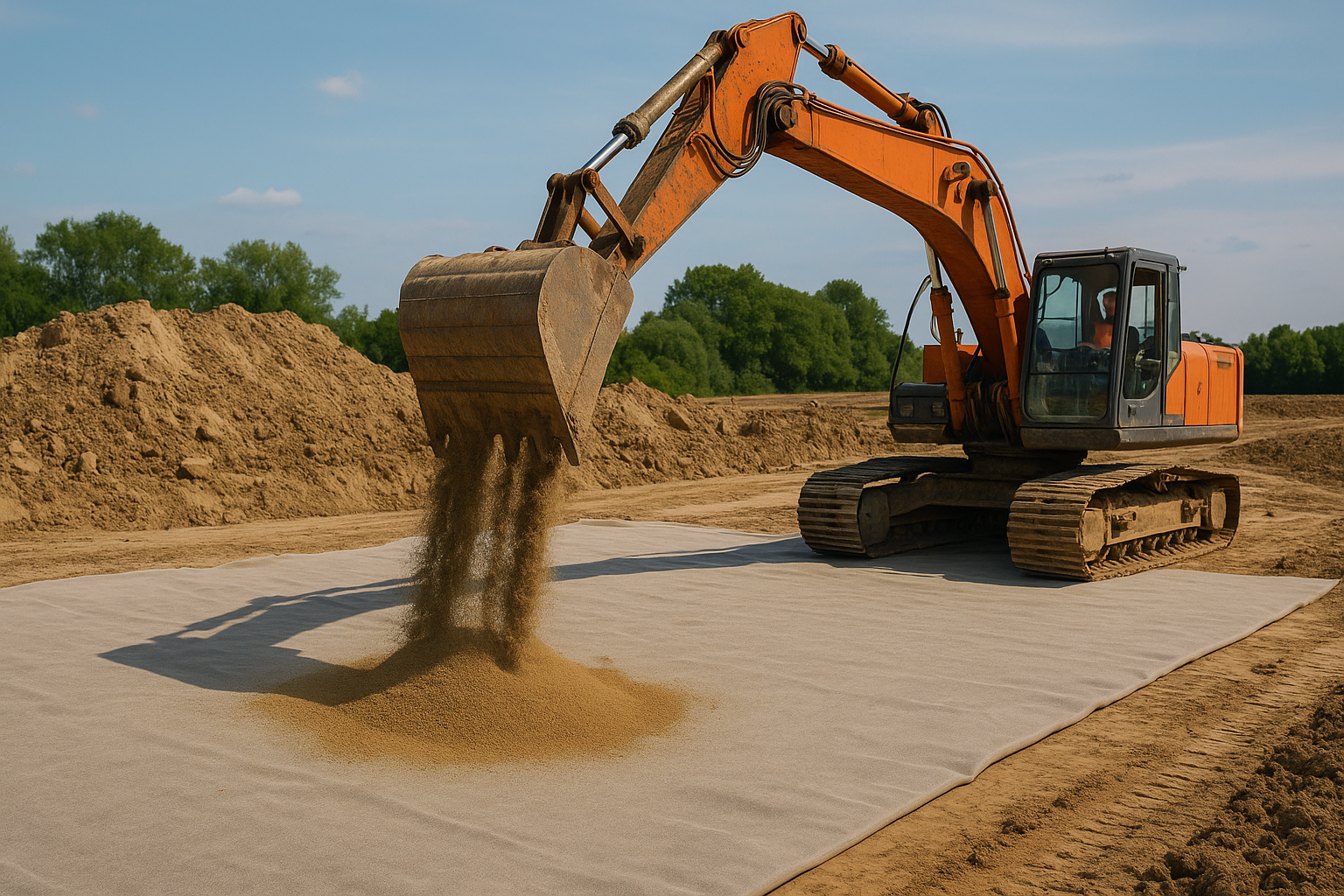Construction professionals constantly seek materials that deliver superior performance, reliability, and cost-effectiveness. When it comes to clay minerals used in construction applications, the choice between sodium bentonite vs calcium bentonite plays a critical role in project success. While both materials belong to the montmorillonite clay family, sodium bentonite offers distinct advantages that make it the preferred choice for most construction applications.
Understanding the differences between these two bentonite types can help engineers, contractors, and project managers make informed decisions that directly impact construction quality and longevity. Here is why sodium bentonite stands out as the superior option for construction projects.
Understanding Bentonite Types and Their Properties
Both sodium bentonite and calcium bentonite originate from volcanic ash deposits, but their chemical composition creates dramatically different performance characteristics. The primary difference lies in the exchangeable cations – sodium ions versus calcium ions – which determine how each material behaves in construction applications.
Chemically, it can be divided into two types: sodium bentonite, which has great swelling properties, and calcium bentonite, which has limited swelling capacity. This fundamental distinction shapes their suitability for various construction purposes.
Sodium bentonite, commonly known as Wyoming bentonite, contains predominantly sodium ions as exchangeable cations. This composition gives it exceptional swelling capacity when exposed to water. Sodium Bentonite absorbs water, swelling up to 20 times its original size and creating a gel, modish kind of substance.
Calcium bentonite, also called Southern bentonite, has calcium ions as its primary exchangeable cations. Calcium Bentonite, commonly referred to as Southern or non-swelling Bentonite, does not swell to the same extent as Sodium Bentonite but has superior adsorption properties.
Superior Swelling Properties for Construction Applications
The most significant advantage of sodium bentonite over calcium bentonite in construction lies in its exceptional swelling characteristics. When sodium bentonite comes into contact with water, it undergoes dramatic volume expansion that creates several construction benefits.
Waterproofing Performance
Sodium bentonite’s ability to swell creates an impermeable barrier that excels in waterproofing applications. The swelling action fills voids, cracks, and gaps, forming a continuous seal that prevents water infiltration. Construction: Sodium bentonite waterproofs a tunnel, reducing leaks by 90%.
This performance makes sodium bentonite ideal for:
- Foundation waterproofing systems
- Basement wall protection
- Underground structure sealing
- Pond and reservoir linings
- Landfill barrier systems
Self-Healing Capabilities
When minor cracks or damage occur in sodium bentonite applications, the material’s swelling properties enable self-repair. As water enters damaged areas, the bentonite swells to close gaps automatically, maintaining system integrity without manual intervention.
Construction Applications Where Sodium Bentonite Excels
Drilling Mud and Slurry Systems
Construction projects involving excavation, pile installation, and drilling operations benefit significantly from sodium bentonite’s properties. The material forms stable drilling muds that:
- Support excavation walls during construction
- Carry debris to the surface efficiently
- Cool drilling equipment during operation
- Create stable boreholes for pile foundations
Geosynthetic Clay Liners (GCLs)
Sodium bentonite serves as the active component in geosynthetic clay liners used for environmental containment. These systems require materials that can form tight seals and maintain barrier properties over extended periods.
Soil Stabilization Projects
The binding properties of sodium bentonite make it valuable for soil stabilization in construction projects. It helps improve soil cohesion, reduces erosion, and creates more stable working surfaces for heavy construction equipment.
Why Calcium Bentonite Falls Short in Construction
While calcium bentonite has its applications, it presents several limitations in construction contexts:
Limited Swelling Capacity
Unlike sodium bentonite, calcium bentonite does not swell as dramatically; instead, it has a lower expansion potential and is generally more suitable for absorption applications rather than creating barriers. This reduced swelling makes it less effective for waterproofing and sealing applications.
Inconsistent Performance
Calcium bentonite’s absorption-focused properties make it better suited for applications like:
- Industrial absorbents
- Pet litter production
- Cosmetic formulations
- Agricultural soil amendments
These applications differ significantly from the barrier-creation requirements common in construction projects.
Cost-Effectiveness and Long-Term Value
When evaluating sodium bentonite vs calcium bentonite from a cost perspective, sodium bentonite often provides better long-term value in construction applications. While initial material costs might vary, the superior performance characteristics of sodium bentonite translate to:
- Reduced maintenance requirements
- Longer system lifespan
- Lower probability of failure-related costs
- Decreased need for repair interventions
The reliability of sodium bentonite systems reduces project risks and associated insurance costs, making it a financially sound choice for construction professionals.
Environmental Considerations and Sustainability
Both bentonite types are naturally occurring clay minerals, making them environmentally friendly construction materials. Sodium bentonite offers additional environmental benefits in construction applications:
Reduced Chemical Additives
The natural properties of sodium bentonite often eliminate the need for synthetic sealers, adhesives, or waterproofing chemicals. This reduction in chemical usage supports sustainable construction practices.
Longevity and Durability
The self-healing properties of sodium bentonite systems reduce the need for replacements and repairs, minimizing environmental impact over the structure’s lifecycle.
Quality Standards and Specifications
Construction projects require materials that meet specific performance standards. Sodium bentonite typically exceeds industry requirements more consistently than calcium bentonite. Use API-grade sodium bentonite for drilling/sealing.
Professional specifications often call for sodium bentonite because of its:
- Predictable swelling behavior
- Consistent quality across batches
- Proven performance in challenging conditions
- Compliance with construction standards
How CMS Industries Supports Construction Professionals
As construction demands for high-quality bentonite continue growing, reliable suppliers become critical project partners. CMS Industries stands out in the bentonite manufacturing sector by providing construction-grade materials that meet stringent project requirements.
CMS Industries leading as best quality bentonite manufacturers and exporters in India. We make large quantities of bentonite & supply it at the most competitive price. Their comprehensive product range includes various grades of sodium bentonite specifically designed for construction applications.
CMS Industries are exporters of Indian Bentonite, Oil Drilling Bentonite, HDD Bentonite, Calcium Bentonite, Construction Bentonite, Pilling Bentonite. This diverse portfolio allows construction professionals to source appropriate bentonite grades for specific project requirements from a single, reliable supplier.
The company’s strategic location near major ports and ISO 9001:2015 certification ensure consistent quality and reliable delivery schedules that construction projects demand. Their technical expertise helps contractors select the right bentonite grade for specific applications, reducing project risks and optimizing performance.
Making the Right Choice for Your Construction Project
When selecting between sodium bentonite and calcium bentonite for construction applications, consider these key factors:
Project Requirements: Waterproofing, soil stabilization, and drilling operations typically require sodium bentonite’s superior swelling properties.
Environmental Conditions: Projects exposed to varying moisture conditions benefit from sodium bentonite’s adaptive sealing capabilities.
Long-term Performance: Critical infrastructure projects need the reliability and self-healing properties that sodium bentonite provides.
Budget Considerations: While evaluating costs, factor in long-term performance and maintenance requirements rather than just initial material prices.
Construction professionals who choose sodium bentonite gain access to a proven material that delivers consistent results across diverse applications. The combination of superior technical properties, environmental benefits, and cost-effectiveness makes sodium bentonite the clear choice for modern construction projects.
Ready to experience the benefits of high-quality sodium bentonite for your construction project? Contact CMS Industries today to discuss your specific requirements and discover how their premium bentonite products can enhance your project’s success and longevity.
Frequently Asked Questions
Q:1 What makes sodium bentonite swell more than calcium bentonite?
Sodium bentonite contains sodium ions as exchangeable cations, which attract more water molecules than calcium ions. This creates greater hydration and swelling capacity, making sodium bentonite expand up to 20 times its original volume when wet.
Q:2 Can calcium bentonite be used for construction waterproofing?
While calcium bentonite has some sealing properties, it lacks the dramatic swelling capacity needed for effective waterproofing. Its limited expansion makes it unsuitable for applications requiring reliable water barriers in construction projects.
Q:3 How long does sodium bentonite last in construction applications?
Sodium bentonite systems can last decades when properly installed. The material’s self-healing properties help maintain performance over time, with many installations showing effective barrier function after 20-30 years of service.
Q:4 Is sodium bentonite safe for construction workers to handle?
Yes, sodium bentonite is generally safe when proper handling procedures are followed. Workers should wear dust masks during installation and follow standard safety protocols for clay materials to avoid respiratory irritation from airborne particles.
Q:5 What construction standards apply to sodium bentonite products?
Construction-grade sodium bentonite must meet various industry standards including API specifications for drilling applications, ASTM standards for geosynthetic clay liners, and local building codes for waterproofing applications depending on the specific use case.







